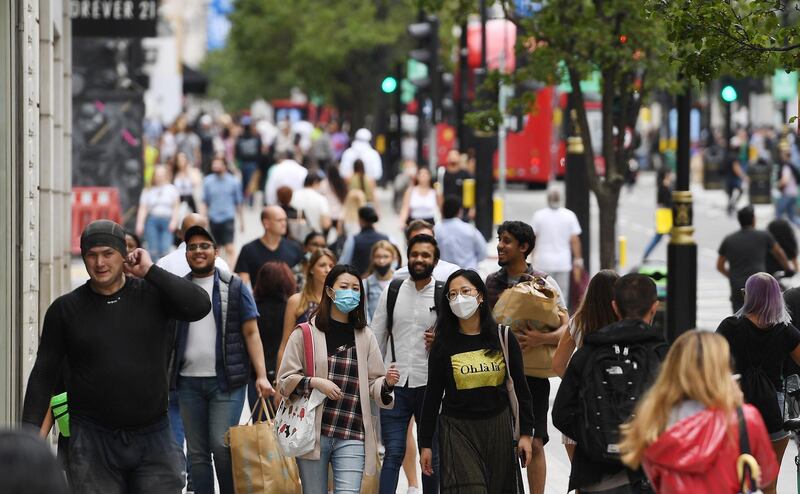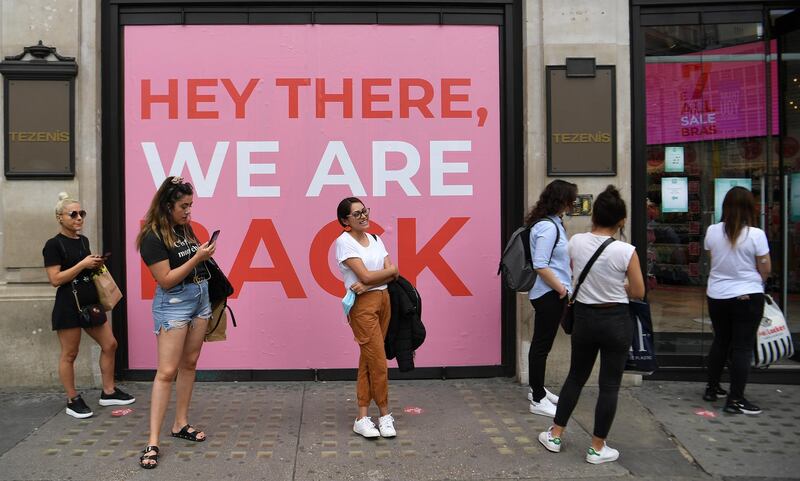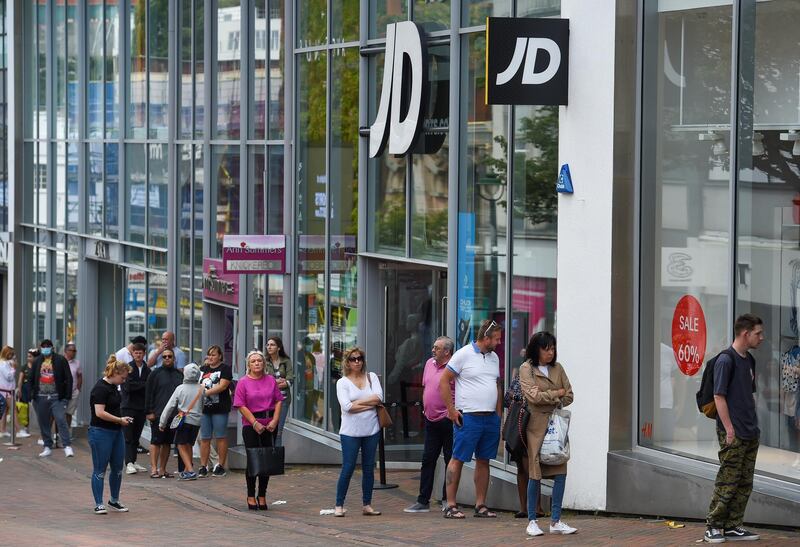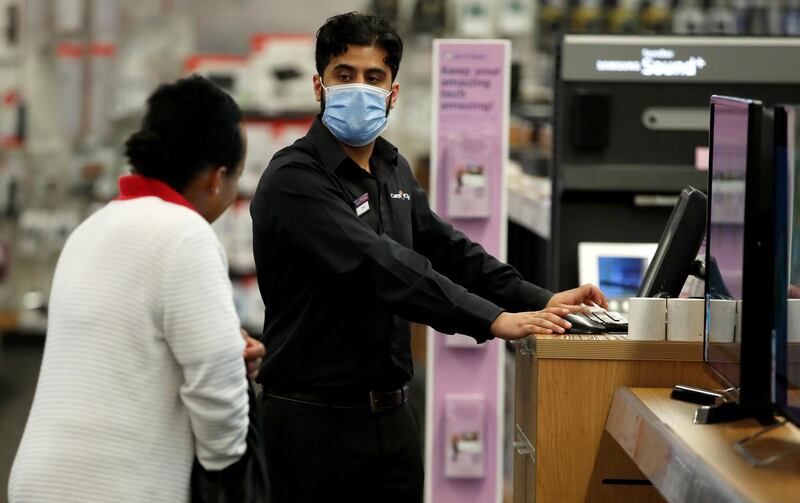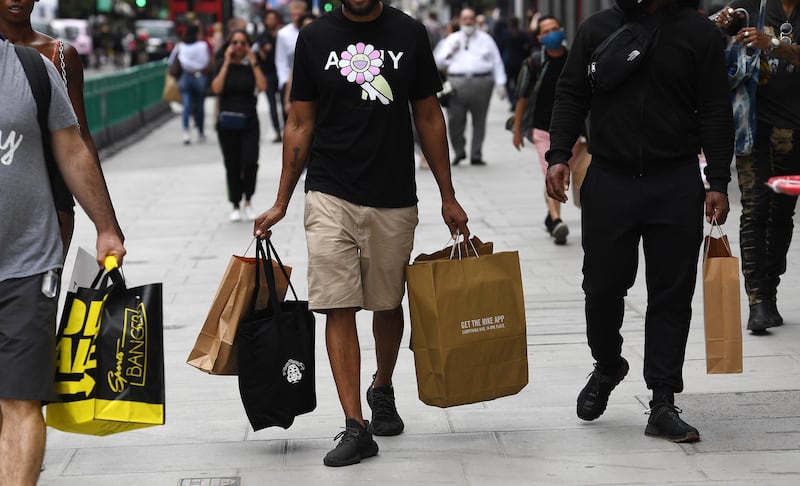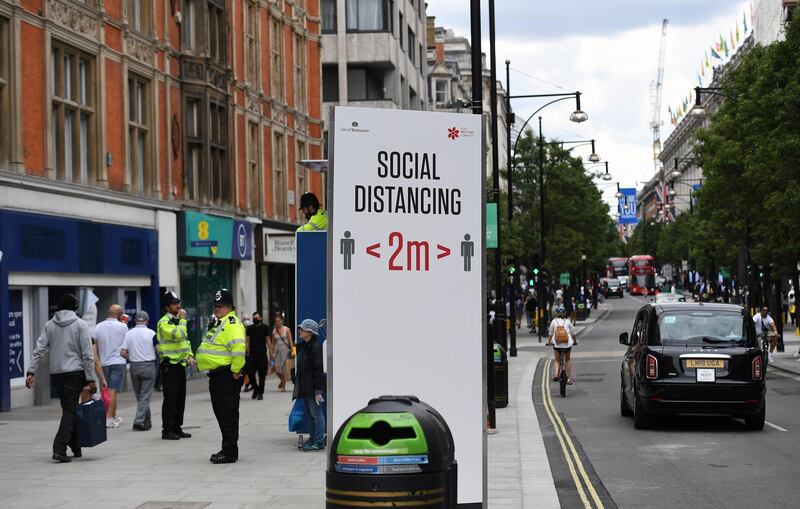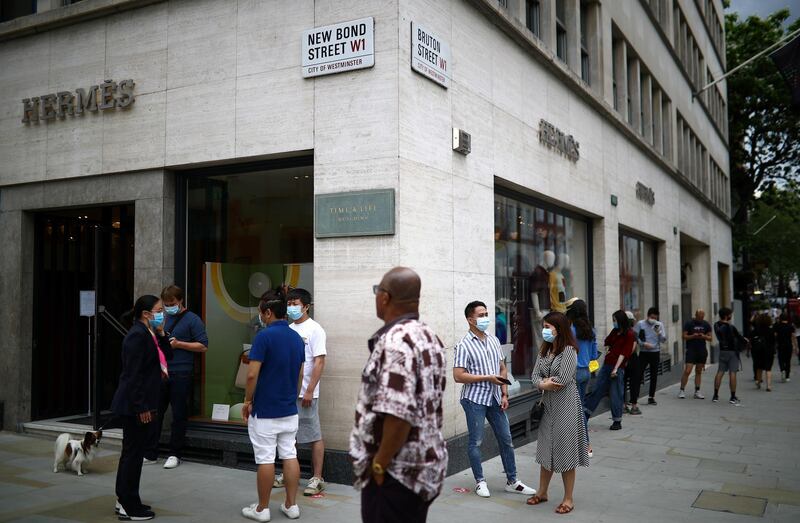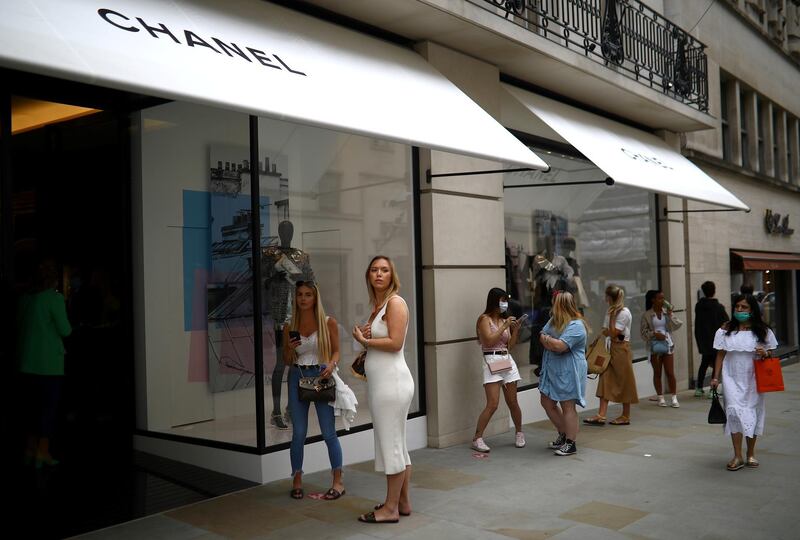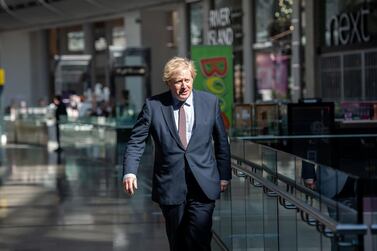Thousands of people across England queued for hours on 'manic Monday' for the reopening of non-essential stores as lockdown measures were eased.
Getting shoppers spending again is central to Britain's recovery after the latest official data showed the economy shrank by nearly one quarter over March and April.
Stores have been closed for 83 days since lockdown began in March and the reopened high street on Monday was vastly different to what shoppers have previously experienced as the UK's strict two metre social-distancing rules remain in force.
Fitting rooms will be closed, according to government guidance, while goods that are tried on or returned by customers need to be stored for 48 hours, or cleaned, before being displayed again on the shop floor.
Hours before stores opened their doors again, queues had formed on London's Oxford Street in scenes mirrored across the country.
The famous Harrods department store in Knightsbridge has placed hand sanitiser dispensers on the walls, provides shoe coverings and a has designed a one-way route around the store.
The seven-floor retailer has been forced to limit itself to only 4,500 customers per day, compared with the 80,000 it would usually see at peak times.
This is London's Oxford St during and after lockdown
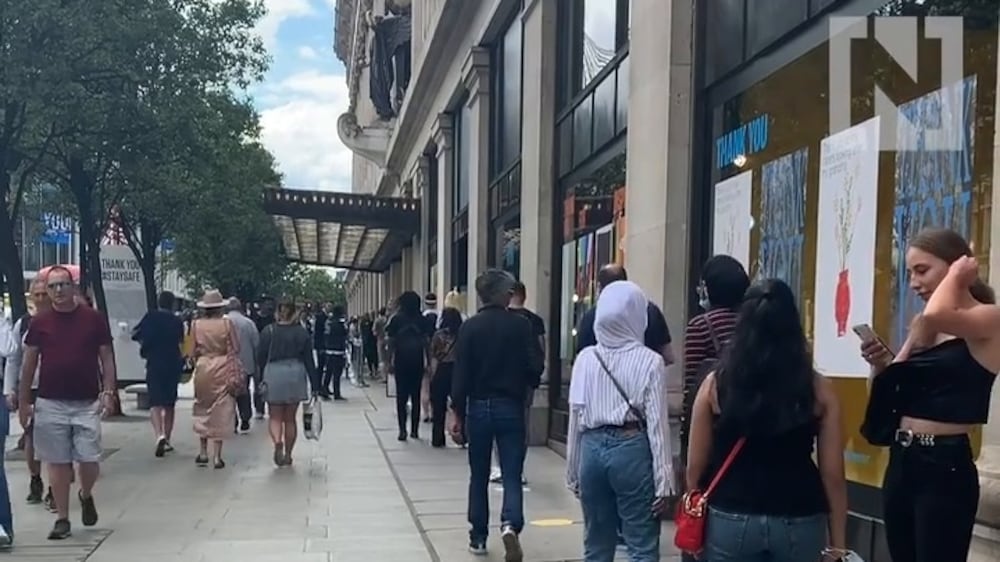
It was not the only store to experience long queues as discount fashion retailer Primark, which does not have an online site, also proved a big draw and opened early to handle the demand.
Primark, owned by Associated British Foods, opened all of its 153 stores in England.
Marks & Spencer, which has traded online and kept its food halls open, reopened the majority of its clothing and homeware sales floors.
But rivals Next and John Lewis opened only 24 and two locations respectively.
"Without doubt this is going to be one of the most difficult years for retailers ever," Anne Pitcher, managing director of upscale department store chain Selfridges, said.
STORE REOPENING | Today’s the day! We’re thrilled to be reopening our doors to you at 11am today. Our store is ready and waiting for your visit, with every precaution in place to ensure the safety of you and our colleagues. Read more here: https://t.co/gCOdHNHWs7#Harrods pic.twitter.com/QWyfXIyKEs
— Harrods (@Harrods) June 15, 2020
While outdoor markets and car showrooms reopened on June 1, Monday was the big return to business for other retailers, which are desperate to get tills ringing again.
The British Retail Consortium estimates the lockdown has cost non-food stores £1.8 billion (Dh8.3bn) a week in lost revenues.
It is urging shoppers to "queue considerately" and to maintain social distancing guidelines.
“Retailers have been working around the clock to create a safe shopping environment, so their customers can have the confidence to return to their favourite shops," Helen Dickinson, the chief executive of the British Retail Consortium, said.
“Our shopping experience may be changing, but if we all follow the necessary social distancing measures and show a little consideration to those around us, then everyone will be better off.”
Last week thinktank the Organisation for Economic Cooperation and Development warned that the UK’s economy is likely to suffer the worst damage from the Covid-19 crisis of any country in the developed world.
A slump in the UK’s national income of 11.5 per cent during 2020 will outstrip the falls in France, Italy, Spain, Germany and the US, it said.
The reopening only applies to England, with stores in Scotland and Wales waiting for guidance from their devolved governments on when they can resume trading. Non-essential stores in Northern Ireland reopened on Friday.
Non-essential retail employs 1.3 million people and is worth £46.6bn a year to the UK economy.
Zoos were also given the green light to open their doors.
More than 2,000 people had pre-booked tickets to visit ZSL London Zoo on Monday, selling out the day's allocation.
The store reopenings also coincided with face coverings becoming mandatory on public transport.
Passengers now face a £100 fine, or being barred from travelling.
Britain has reported the third highest number of coronavirus deaths after the United States and Brazil, something critics of the UK government say reflects its response to the pandemic.
On Sunday, Prime Minister Boris Johnson reaffirmed his commitment to reviving the economy without allowing a second wave of cases.
“We’ll work closely with the scientists at all times and make the right decision on the basis of safety, health and stopping the disease,” he said.
He has faced mounting pressure to cut the two metre rule to one metre.
